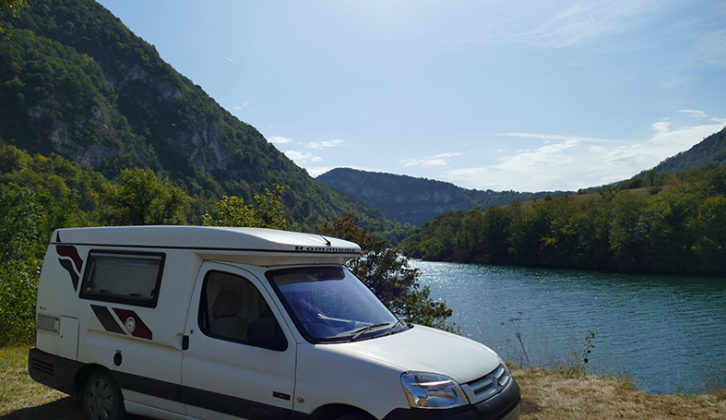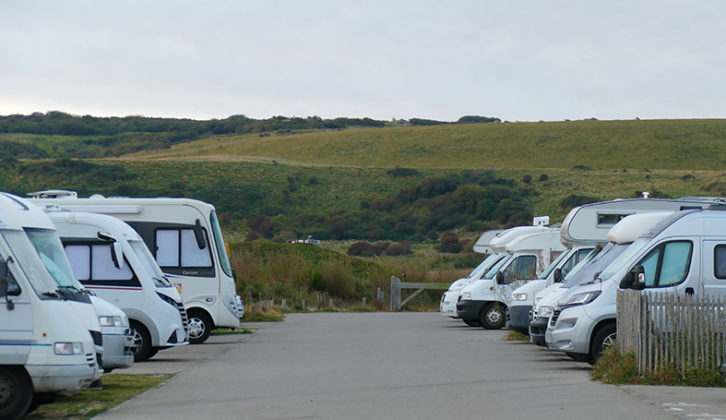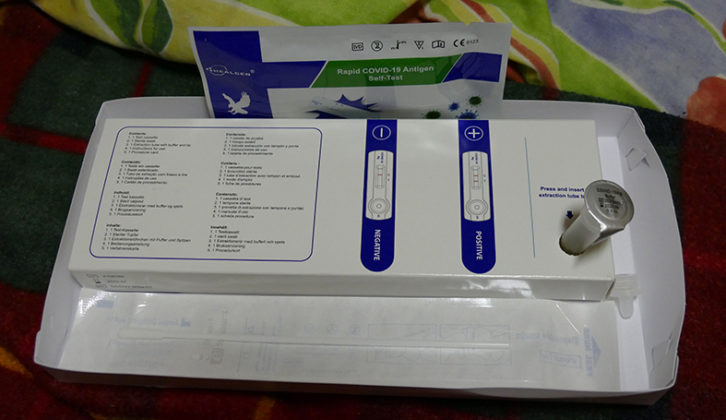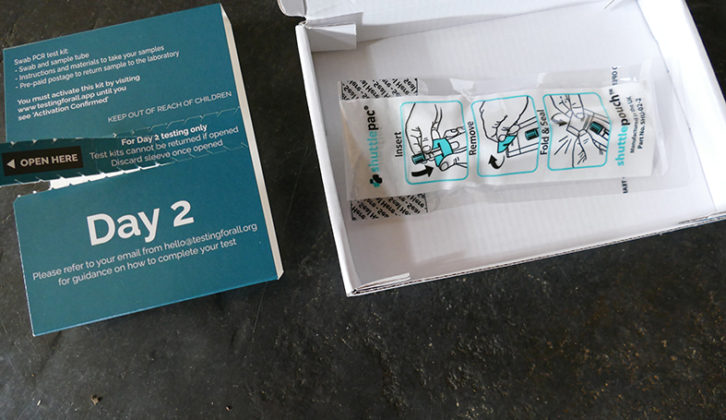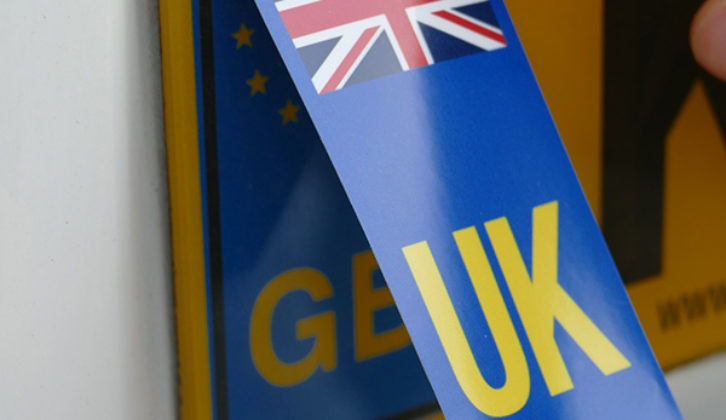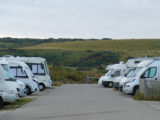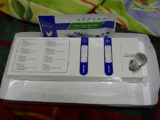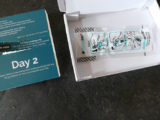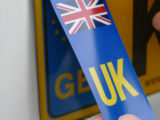AH, THE FRESH smell of baguettes baking in the boulangerie, the scent of herbs in the market, the taste of croissants and coffee at a street café, the sight of an azure Mediterranean sea, the sound of those copper bells in the city, the feel of flower-strewn meadows on a walk amid Alpine mountains. Ah, France, how we’ve missed you!
There has been much talk and much written about (not) travelling to France in the past 18 months; how difficult it is with law changes since 1st January 2021 plus rules and regulations regarding Covid that can sound, at best, confusing and, at worst, stifling. The talk is frequently of ‘restrictions’. Let’s think positively and what we can do! What’s the real picture?
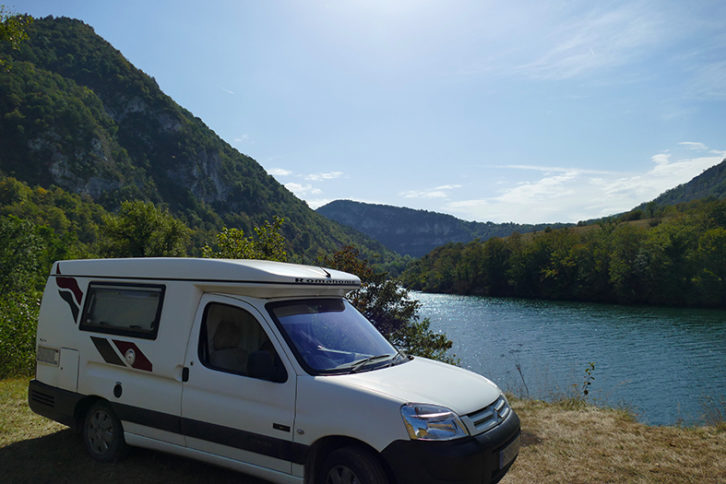
I travelled to France (and Germany, via Belgium and Luxembourg) in my campervan in late September 2021 to see how easy – or difficult – it really might be. How was it? Easy-peasy. This is my countdown for travelling to France, and my return to the UK.
Rules regarding Covid to travel to France and return to the UK
Rules have eased since I visited France a few weeks ago, so it’s even easier to travel now.
There are no entry requirements to visit France from the UK, except to provide a Statement of Honour; details on this below.
To return from France to the UK, whether England, Scotland, Wales or Northern Ireland, the rules are the same: if fully vaccinated (ie two doses) you must fill in a Passenger Locator Form before you return and, take a Covid PCR test on or before Day Two after your return. If you are not fully vaccinated, then you must also take a Lateral Flow Test or PCR test within 72 hours prior to returning to the UK, plus an additional PCR test on Day 8 after your return to the UK and a 10-day quarantine (or follow the Test to Release guidance).
The difference between devolved nations is the age of children whether vaccinated or otherwise:
England
- Under 4 years – no requirements
- 5-17 years – must take a Day 2 test upon return to UK but no quarantine is necessary
Wales
- The 72-hour pre-departure test in France is not required for children under the age of 11.
Scotland
- Under 18 years – no pre-departure test in France required and no need to self-isolate but
- 11-17 years – a Day 2 PCR test is required upon return to the UK
- Under 11 years – no Day 2 PCR test required
Northern Ireland
- Under 18 years – no pre-departure test is required, quarantine or day 8 test required
- 5+ years – a Day 2 PCR test is required
Further information and clarification can be found on the UK Government website: www.gov.uk/guidance/travel-to-england-from-another-country-during-coronavirus-covid-19
COUNTDOWN
Obtain your NHS Covid Pass
My recommendation a minimum of 48 hours before travel to France
Before you return to the UK, you’ll need to provide proof of full, or partial, vaccination to avoid the requirement to follow non-vaccination rules. Restaurants, museums, campsites and attractions in France will also request sight of a ‘health pass’; for this, the NHS Covid Pass works.
It’s possible to request a paper version of your NHS Covid Pass, which takes a few days to arrive, however the quickest and easiest way is to request a digital pass online. For this, you’ll need your name, NHS number (if you know it), and date of birth. Your name on your GP records must match your passport.
For overseas travel, you need to provide extra photo ID to prove who you are; this can include either a UK photo driving licence, passport or European driving licence/National Identity Card.
You then record a short video of yourself on the app, which is checked against the ID that you upload. This can take up to 24 hours, however, my NHS Covid Pass was ready to download within a couple of hours. Note, if you are applying on a laptop, the video service on the app does not work on Safari; it does on Google Chrome.
To prove who you are without Photo ID, you’ll need to be registered for online services with your GP. This takes days and, as you’ll need your passport anyway, it makes sense to use this app.
In addition to having the Pass on my ‘phone, I also printed out a couple of copies as back-up in case I had issues with ‘phone charging.
- Time taken: 15 minutes (2 hours with return); Cost: free
Book your travel to France either with Eurotunnel, or one of the ferry operators
Making bookings hasn’t changed since Covid-19 rules have been put in place, or post-Brexit. That said, P&O Ferries are offering customers a Covid testing package that is booked online with your ferry crossings. Further details are on the P&O website.
Masks are still obligatory when travelling onboard ferries. I travelled with Eurotunnel, where masks are not required and, because you must stay in your vehicle, there is greater opportunity for social distancing. You can also add your Advance Passenger Information (API) at this stage, providing the names and passport numbers of those travelling; this saves time at the terminal/port.
- Time taken: 15 minutes
If not fully vaccinated, book a 72-hour pre-departure Covid test
When I travelled to France, a rule was in place that travellers must take a test prior to returning to the UK even if fully vaccinated. That’s no longer necessary, but this ruling still applies to non- or partially-vaccinated travellers.
My concern was that, as I would be touring in my campervan, I didn’t know exactly where I might be within France 72 hours before returning to the UK and didn’t want the loss of freedom to have to book a test at a particular pharmacy in France.
No matter. I booked and paid for a Lateral Flow Test kit online (you cannot use a free NHS test kit), which arrived in the post before I left the UK to take with me to France. I bought my Test to Return kit from Chronomics (www.chronomics.com), which is an approved laboratory on the UK Government’s website: www.find-travel-test-provider.service.gov.uk/test-type
- Time taken: 10 minutes Cost: £28
Book your Day Two PCR Covid test (for when you return to the UK) prior to travelling to France
Proof, with a registration code, must be provided when you fill in your Passenger Locator Form before you return to the UK, therefore you must have booked your Day Two PCR test in advance. I knew which day I would be returning to the UK and it therefore made sense to book the test before I left the UK. If you are travelling with an open-ended return date, simply book a test online once you know when you’ll be returning to the UK.
These PCR tests should be test-at-home kits. I booked this with Testing for All (www.testingforall.org/product/day-2/), which is also an approved laboratory on the UK Government website.
If you require multiple tests, such as the 72-hour pre-departure test and Day Two/Eight post-arrival tests), there are laboratories that will provide test bundles. For example, Chronomics offer a package including the Test to Return and Day Two kits for £98.75. But shop around, by purchasing my two tests from separate organisations, I saved more than £20.
- Time taken: 10 minutes; Cost: £48
Complete a Statement of Honour within 48 hours prior to your arrival in France
Taking a Statement of Honour with you to the ferry port is the only requirement to visit France from the UK. There is an English-language version on the French Government website to download.
Fill the form in then keep it on your ‘phone or print it out. I was asked for sight of it upon my arrival at the Eurotunnel check-in, and nowhere else. The French customs officials at Eurotunnel didn’t request to see it.
- Time taken: 2 minutes
ENJOY FRANCE!
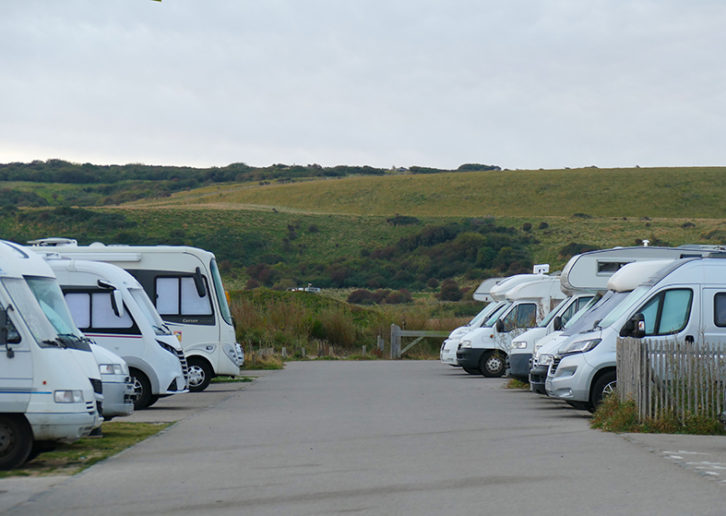
France on this trip, as always, was a joy to travel around in a motorhome. The roads are excellent, the autoroutes usually quieter than any in the UK and the system of aires, exclusively for motorhomes and mostly free to use, a welcome addition to the thousands of campsites.
Masks are still obligatory in all public spaces, in shops, museums, restaurants and cafés, on the streets in town centres and all public transport. I was also asked to show my NHS Covid Pass (Pass Sanitaire) when entering museums, restaurants and visitor attractions – and upon arrival at a campsite. The QR code, one for each vaccination, will be scanned; I had no problems anywhere in France. The QR codes last for 30 days, so if you’re staying longer, simply login to the NHS Covid Pass app and refresh.
I also travelled through parts of Germany and stopped for diesel in Luxembourg (the cheapest country in Europe for fuel). Different rules apply in different states, so it made sense to wear the mask when entering shops and buildings.
- Time taken: as long as you have time for, up to 90 days
If not fully vaccinated, take a Covid test within 72 hours before returning to the UK
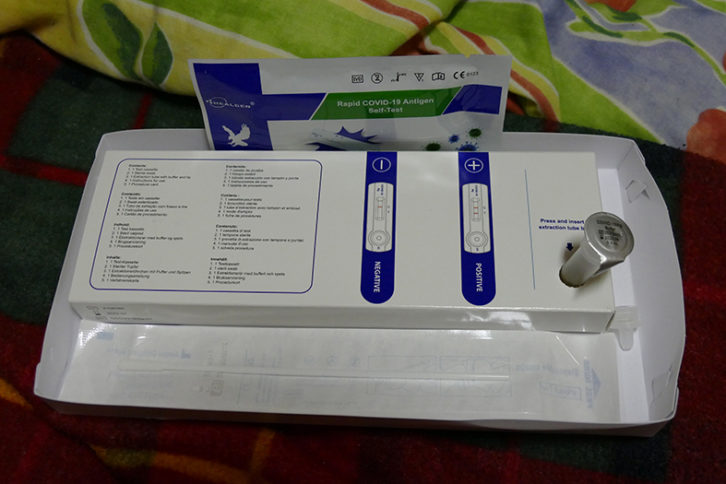
Three days before I returned to the UK, I registered the Chronomics Test to Return lateral flow test kit online and performed the test very easily in the comfort of my campervan at my leisure. The results were uploaded (taking a photo of the registered kit for proof) to the Chronomics website; I received a confirmation email certificate within seconds that I could use to return to the UK. Note, this test only applies, now, to travellers that have not received two vaccine doses.
If you are not comfortable taking your own test, or if something goes wrong, you can obtain a test quickly and easily throughout France. Many laboratories are English speaking; in particular, there are four pharmacies in Calais where you can take a test. You can book online at: www.cascoronavirus.fr/carte-centres-test-depistage.
Other reputable laboratories where you can locate a pharmacy and book a Covid test across France include: www.doctolib.fr and www.eurofins-biologie-medicale.com/en. Both sites have an English-language version.
- Time taken: 20 minutes (which includes making a cup of tea while results appear)
Fill in a Passenger Locator Form within 48 hours prior to returning to the UK
Every person entering the UK must complete a Passenger Locator Form, on the UK Government website: www.gov.uk/provide-journey-contact-details-before-travel-uk. This should only be done within the 48 hours before your booked departure time to return to the UK.
The form will ask you to confirm which country you have been in over the previous 10 days, and the ferry or ‘flight’ number. For this, you simply add Eurotunnel or the shipping name (eg DFDS). Do not worry about a particular number. It will also ask you to key in the registration code for your booked Day Two PCR Covid test.
The PLF is where the only problem occurred during my trip. To complete the form, you must upload your proof of vaccination (if you tick the box that says you are vaccinated). But the app does not recognise certificates showing two QR codes, ie the NHS Covid Pass! Consequently, I arrived at the Eurotunnel check-in, in Calais (Coquelles), with my PLF stating that I had not proved my vaccination status.
If this happens, it simply means that you are requested to visit the Covid administration desk in the terminal building to present your documentation prior to travel. The process was quick and efficient, although it does defeat the object of travelling in your own vehicle if you are particularly keen to avoid busy locations.
One form per passenger is required and, if you change your travel plans, you do need to resubmit the form.
- Time taken: 10 minutes per form
Take a two-day PCR test within 48 hours after arrival in the UK
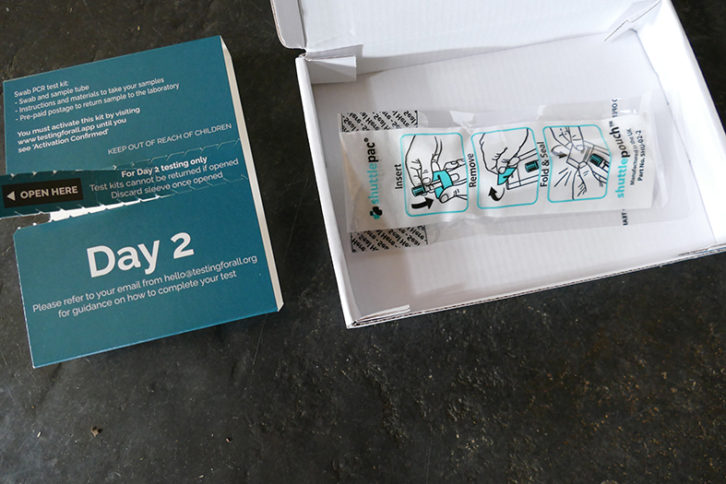
Testing for All, the laboratory I used, had emailed me while in France to say that my test kit had been dispatched and it arrived the day after I returned to the UK. I duly carried out the test at home, placed it in the pre-paid box supplied with it and posted it in the nearest Priority postbox.
The result of my test arrived within 24 hours; I didn’t have to do anything else as the results are automatically sent to the NHS by Testing For All.
- Time taken: 20 minutes (including waiting time) and a short walk to the postbox
Myths about travel to France since 1st January 2021
It’s not only legislation surrounding travel during the Covid pandemic that has put many tourists visiting France. Changes to travel since 1st January have been reported but it’s much easier than you think.
1.You do not need a Green Card to travel to France
Legislation regarding vehicle insurance documents for motorhomes hasn’t changed. So, if your motorhome insurance provider automatically includes European cover, you do not need to tell them in advance that you are travelling to France, or to obtain a Green Card.
2.You do not need an International Driving Permit to drive in France with a UK driving licence
There is no requirement for an International Driving Permit to drive in France. Providing you have a full UK photo-ID driving licence, this will suffice.
3.You do not need to buy a new passport
Providing you have more than six months left on your existing UK passport issued before 1st January 2021 (ie the red-covered passport) when you return to the UK, you do not need to go to the expense of buying a new passport.
4.You do not need to buy an expensive new numberplate

The law changed at the end of September, stating that UK-registered vehicles must display a ‘UK’ sticker rather than ‘GB’ and/or the EU flag. That does not mean that you need to go to the expense of buying new numberplates. I purchased a set of stickers via Amazon to update my numberplate.
- Time taken: 5 minutes; Cost £2.99
5.You do not need to pay expensive roaming charges
There has been much talk that service providers will be returning to adding roaming charges to customer bills while using their ‘phone abroad. Check with your service provider: Tesco Mobile, Virgin Mobile and O2 currently have no roaming charges. EE and Vodafone customers with existing contracts prior to 7th July and 11th August respectively, won’t currently pay roaming charges.
6.You do not need to take out expensive health insurance
Of course, it’s always recommended that you do take out travel insurance. However, the former EHIC (European Health Insurance Card) has been replaced by the GHIC (Global Health Insurance Card). Your EHIC continues to remain valid until its expiry date. Mine had run out so I obtained the new GHIC card. It only takes a few minutes to apply online, which covers you for health issues while in France.
- Time taken: 10 minutes; Cost: Free
7.You do not need to worry (too much) about having your pint of milk or your snacks confiscated
Part of the joy of trips to France is purchasing magnificent local produce while touring. But, when travelling in a motorhome, you might wish to take a pint of milk for that early morning cup of tea when you arrive before the shops open, or some snacks for the journey.
New rules introduced indicate that you cannot take dairy or meat products from the UK into England. When I arrived in France, I deliberately bought a delicious, milky coffee from the terminal building at Eurotunnel, and a breakfast snack in a bag and placed them on the dash.
No customs officer hauled me over when travelling through the port to enquire what was in the mug or the bag; I was not reprimanded for taking my frothy coffee through customs, and I took it with me to enjoy on my journey.
It’s up to you whether you chance a pint of milk in your campervan fridge. But the impression I got is that it’s not the big fuss that was made initially – neither is it worth crying over spilt milk and a sausage roll if you must drop them in the bin before you hop onto the ferry.
France is welcoming and waiting to be explored. It took me less than an hour of admin to arrange everything prior to my trip and the required tests were a doddle to perform in the comfort of my campervan, wherever I happened to be in France, and at home. My next trip is already in the diary!
Crossings between the UK and France
If you are a member of either the Caravan & Motorhome Club or the Camping & Caravanning Club, you can book ferry/Eurotunnel crossings through them and will almost certainly pay less. Booked through the Caravan & Motorhome Club, my Eurotunnel crossing was some £80 cheaper than had I booked direct.
- Folkestone to Coquelles (between Calais & Boulogne-sur-Mer) 35 minutes
- Dover to Calais 1½ hours
- Dover to Dunkerque 2 hours
- Newhaven to Dieppe 4 hours
- Dover to Calais 1½ hours
- Dover to Calais 1½ hours
- Portsmouth to Caen 5 ¾hours / 7 hours
- Portsmouth to St Malo 11 hours
- Portsmouth to Cherbourg 8 hours
- Portsmouth to Le Havre 3¾ hours
- Poole to Cherbourg 4½ hours
- Plymouth to Roscoff 5½hrs/9 hours
- Portsmouth to Bilbao 23 ½ hours
- Portsmouth to Santander 28½ hours / 32¾ hours
- Plymouth to Santander 20hours
- Poole to St Malo 6 hours 20 minutes
You’re in Hall 6 Advice Lounge & Event Theatre at Van Live! See what else is happening on stage, or take me to the Show Guide.
Masks are still obligatory when travelling onboard ferries. I travelled with Eurotunnel, where masks are not required and, because you must stay in your vehicle, there is greater opportunity for social distancing

